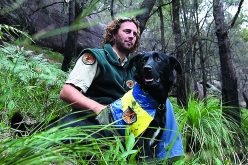By Amanda Bancroft
There’s a hot new movement of ripple-makers calling themselves “effective altruists” and gaining attention from the Chronicle of Philanthropy, TED, CNN, The New York Times, The Washington Post, and others. The Stanford Social Innovation Review published an article this month describing effective altruism as “dedicating a significant portion of your time or money to helping others, and trying to use that time or money in whatever way makes the most difference.” How can we be the most effective with monetary donations? Research. And some organizations are dedicated to making it easier for us to decide where to donate.
The Centre for Effective Altruism is the hub for organizations exploring concepts and actions for effective altruism, which it defines as “combining empathy, reason and evidence.” Its member organizations include Giving What We Can, which seeks to examine the most effective charities helping developing countries and encourages pledging donations, and 80,000 Hours, which researches and promotes careers that make the most difference over the 80,000 working hours a person has in an average lifetime. The Life You Can Save is an affiliated organization sparked by the work of Peter Singer and his book of the same title. “Nineteen thousand children are dying every day. Does it really matter that we’re not walking past them in the street?” said Singer.
Giving What We Can has compiled statistics refuting “8 Myths About Giving,” including the concept of “charity begins at home.” U.S. citizens believe that 25 percent of the Federal Budget is being spent on foreign aid, feel that we should be spending only 10 percent, and don’t realize that we’re actually spending less than 1 percent on foreign aid. Giving What We Can also compares charities’ cost-effectiveness on their website: helping one blind person in the U.S. by providing a guide dog costs $50,000 while providing trachoma surgery to cure the blindness of a person in a developing country costs about $10. The dollar goes further abroad. GiveWell, a charity evaluator focusing on effective altruist principles, released an official list Dec. 1 that includes only three recommended charities, all international: GiveDirectly, Schistosomiasis Control Initiative, and Deworm the World Initiative.
While GiveWell is receiving good publicity and gaining support, Charity Navigator’s website still receives twice the amount of web traffic. Charity Navigator ranks organizations and gives quick, visual information on their financials and other data. Great Nonprofits and Guidestar also list organizations that can be reviewed by users online, but reviews are scarce for our local area, and some local organizations only have reviews from its own board members who don’t post their affiliation. GuideStar boasts 1.8 million IRS-recognized tax-exempt organizations in its listings. Philanthropedia, a division of GuideStar, is useful in determining research-verified non-profits across 34 causes. It might be most useful to evaluate and compare your chosen charities across all of these websites, and make an informed choice.
There are millions of ways to make ripples, and donating money is just one – but has huge impact potential across every cause. So, how will you use your 80,000 hours to give well?
Ripples is a 100% solar-hosted website that includes a blog, newspaper column, resources and services for individuals and non-profit organizations. Read more on this topic and others at www.RipplesBlog.org.










